Table of Contents
ToggleIntroduction
This article explores the 12 key areas of importance of microbiology, highlighting its applications in agriculture, biotechnology, medicine, ecology, and more.
Microbiology, the study of microorganisms such as bacteria, fungi, viruses, protozoa, and algae, plays a vital role in science, industry, medicine, and daily life. Although these organisms are invisible to the naked eye, their influence is vast—impacting soil fertility, food production, biotechnology, healthcare, environmental conservation, and even forensic investigations.
1. Importance of Microbiology in Agriculture
- Agriculture depends heavily on microbial processes to ensure sustainable farming and food security.
- Microbes are essential to agriculture because they promote plant development and raise soil fertility.
- They convert complicated organic and inorganic molecules in the soil into simpler forms that plants can easily take up.
- For example, phosphate-solubilizing bacteria transform insoluble phosphates into soluble forms, while other microorganisms break down organic matter and liberate vital nutrients.
- Atmospheric nitrogen is fixed and transformed into ammonia by some microorganisms, like Rhizobium and Azotobacter, which plants utilize to make proteins and nucleic acids.
- As a biofertilizer, these nitrogen-fixing microorganisms offer an organic and environmentally friendly substitute for chemical fertilizers.
- Their behavior promotes sustainable soil health and increases crop output.
- Thus, agricultural microbiology is crucial for sustainable soil health, climate-friendly farming, and improved crop yield.
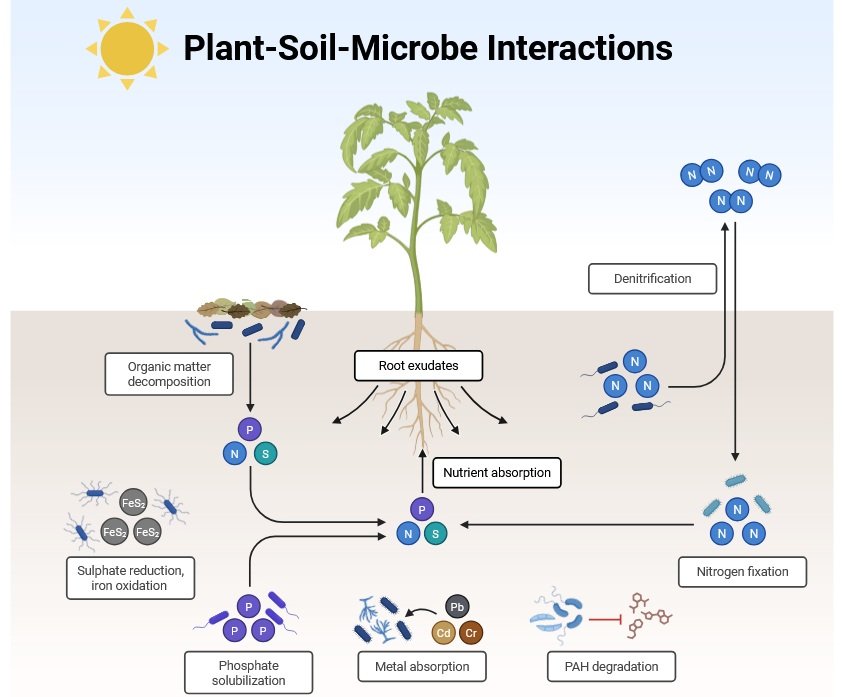
2. Microbiology in Genetic Engineering and Biotechnology
- Microorganisms are at the heart of genetic engineering and biotechnology.
- Genetic engineering and biotechnology have benefited significantly from study on microorganisms.
- Researchers can design microbes to carry out certain tasks by knowing about microbial metabolism, gene regulation, and survival strategies.
- The introduction of foreign genes into bacteria can result in genetically modified strains that solve a variety of issues, such as food security, energy scarcity, and pollution.
- Bioremediation uses manufactured microbes to degrade environmental contaminants, create biofuels, or create valuable nutrients.
- Genetically modified bacteria are used in medicine to create targeted drug delivery systems, vaccines, and therapeutic proteins.
- The use of microorganisms in these applications demonstrates their potential as adaptable instruments for tackling global problems.
- This demonstrates the adaptability of microbes as tools to address global challenges such as pollution, food scarcity, and energy demand.
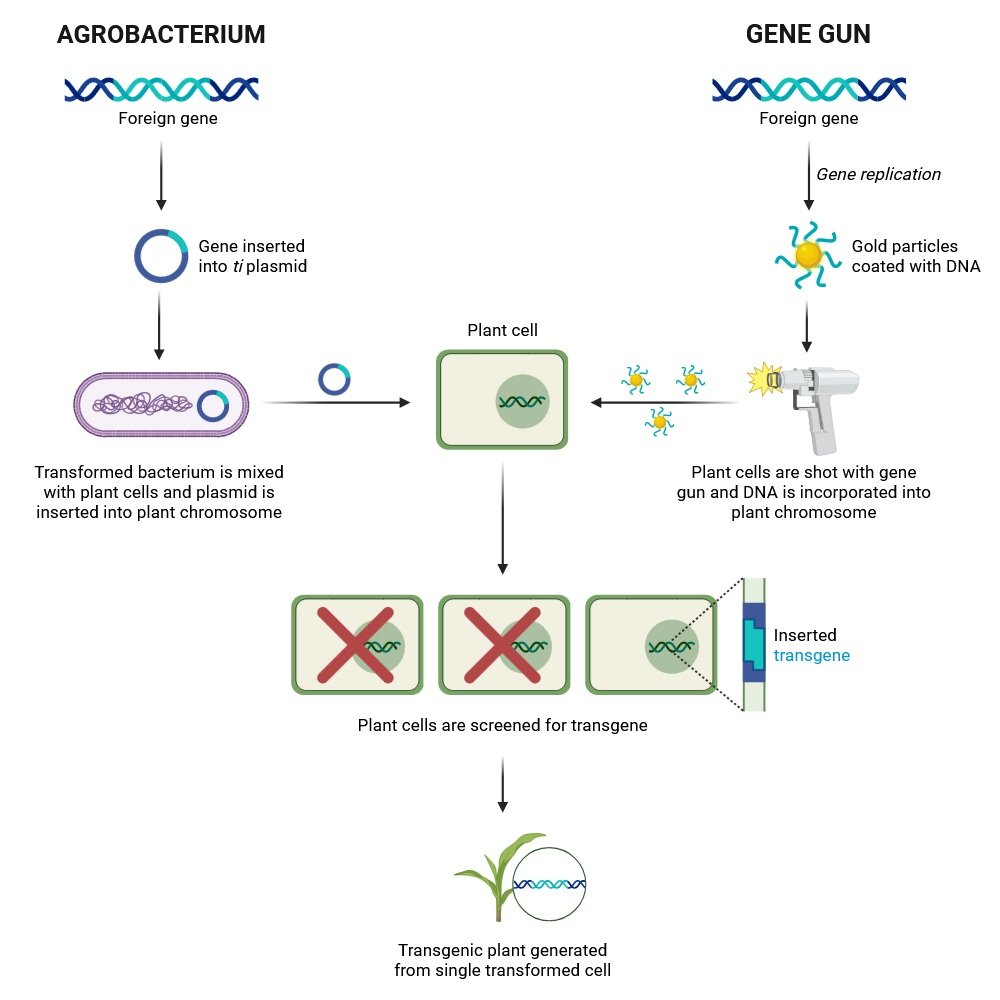
3. Microorganisms in Medicinal and Industrial Production
- In businesses, bacteria are frequently employed to manufacture significant quantities of valuable chemicals.
- Their quick growth and efficient metabolism make them perfect for industrial fermentation processes that transform low-cost raw materials into pharmaceuticals, food items, and chemicals.
- For instance, while other microorganisms are employed to make growth hormones, enzymes, antibiotics, vitamins, and vaccines, Escherichia coli has been designed to generate insulin.
- Organic acids, amino acids, biofuels, and biodegradable plastics are also made using microbial fermentation.
- The use of microbes in industrial production guarantees sustainability, cost-effectiveness, and the capacity to satisfy the world demand for vital chemicals.
4. Importance of Microbiology in Healthcare
- Microbiology is essential to contemporary healthcare, providing the foundation for the identification, therapy, and prevention of infectious diseases.
- Clinical microbiologists determine the pathogenic microbes in patient samples, facilitating focused treatments and efficient infection management strategies.
- The field of microbiology has advanced to the point where it has produced vaccines, antibiotics, and diagnostic methods that are crucial for treating illnesses.
- Furthermore, microbiological studies guide hospital sanitation procedures and hygiene practices like hand washing, which are vital for avoiding infections picked up in the hospital.
- In general, microbiology is a critical component of healthcare since it improves public health results and patient safety.
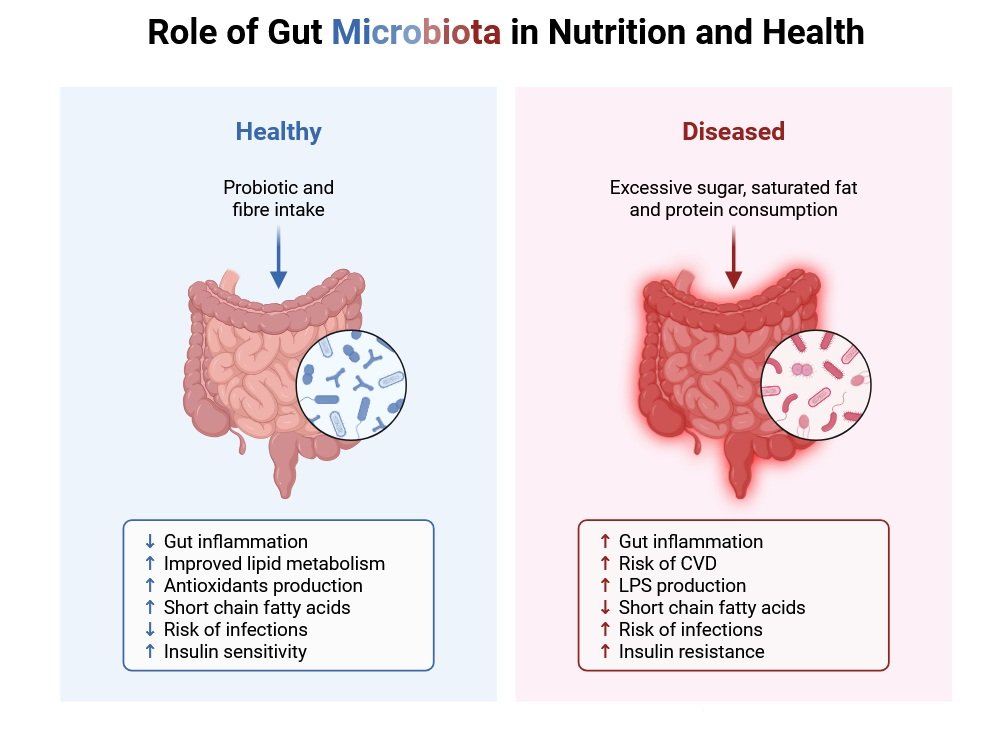
5. Microbiology in Forensic Sciences
- Microbial forensics, a growing discipline, uses microbiological methods in forensic investigations to provide important information about criminal cases.
- Even in the absence of DNA or fingerprints, microbial evidence, such as microbial communities on skin, saliva, hair, or other items, can be used to identify people.
- Furthermore, the examination of microbial communities connected to decaying corpses, referred to as the necrobiome, helps to calculate the post-mortem interval (PMI) and identify the cause of death. Identifying the cause and manner of death, as well as the place where it occurred.
- The sensitivity and accuracy of microbial forensic analyses have been improved by advancements in machine learning and next-generation sequencing, making it a potential tool in contemporary forensic science.
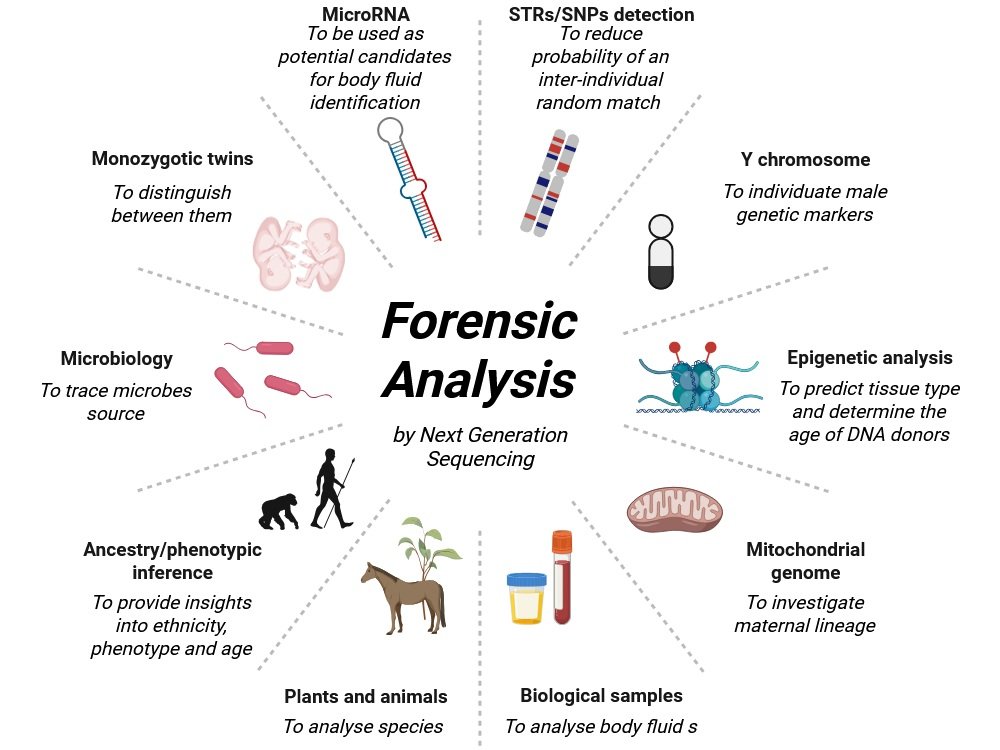
6. Microbiology in the Food Industry
- By utilizing the potential of microbes to improve food production, safety, and sustainability, microbiology is essential to the food industry.
- The fermentation process, which is necessary for the production of a wide variety of food products, relies heavily on helpful microorganisms like bacteria, yeasts, and fungi.
- Alcoholic drinks, bread, dairy products, and fermented foods are all included.
- These microbes aid in the creation of distinctive tastes, textures, and nutritional profiles in meals.
- They are also used in the manufacturing of enzymes, organic acids, and bioactive substances that act as preservatives, flavor enhancers, and functional components.
- Microbiological methods are also useful for monitoring and managing harmful microorganisms, which improves food safety and shelf life.
- In addition, developments in microbial biotechnology have resulted in innovations in sustainable food production methods, such as the use of microbes in waste valorization and the creating innovative food packaging materials.
- In general, microbiology is essential to the food industry because it fosters innovation and enhances public health by creating foods that are safe, nutritious, and environmentally friendly.
7. Microbiology and Immunology
- Immunology, a subfield of microbiology, studies how organisms defend themselves against disease.
- It explains how the immune system distinguishes between self and non-self-antigens.
- Research in immunology has led to vaccines, cancer immunotherapy, and allergy treatments.
- Understanding immune memory helps in designing long-term protective immunity.
- It also sheds light on autoimmune diseases and their management.
- Thus, immunology plays a central role in medicine and disease prevention.
8. Soil Microbiology
- Soil bacteria promote nutrient cycling and enhance soil fertility, soil microbiology is essential to agriculture and the health of ecosystems.
- These microbes break down organic matter, fix atmospheric nitrogen, dissolve phosphates, and create humus, which makes vital nutrients available for plants.
- In addition, they promote plant growth, improve soil structure, and contributeto bioremediation and ecological harmony.
- Consequently, sustainable agriculture, forestry, and land use depend on an understanding of soil microbiology to guarantee long-term production and environmental protection.
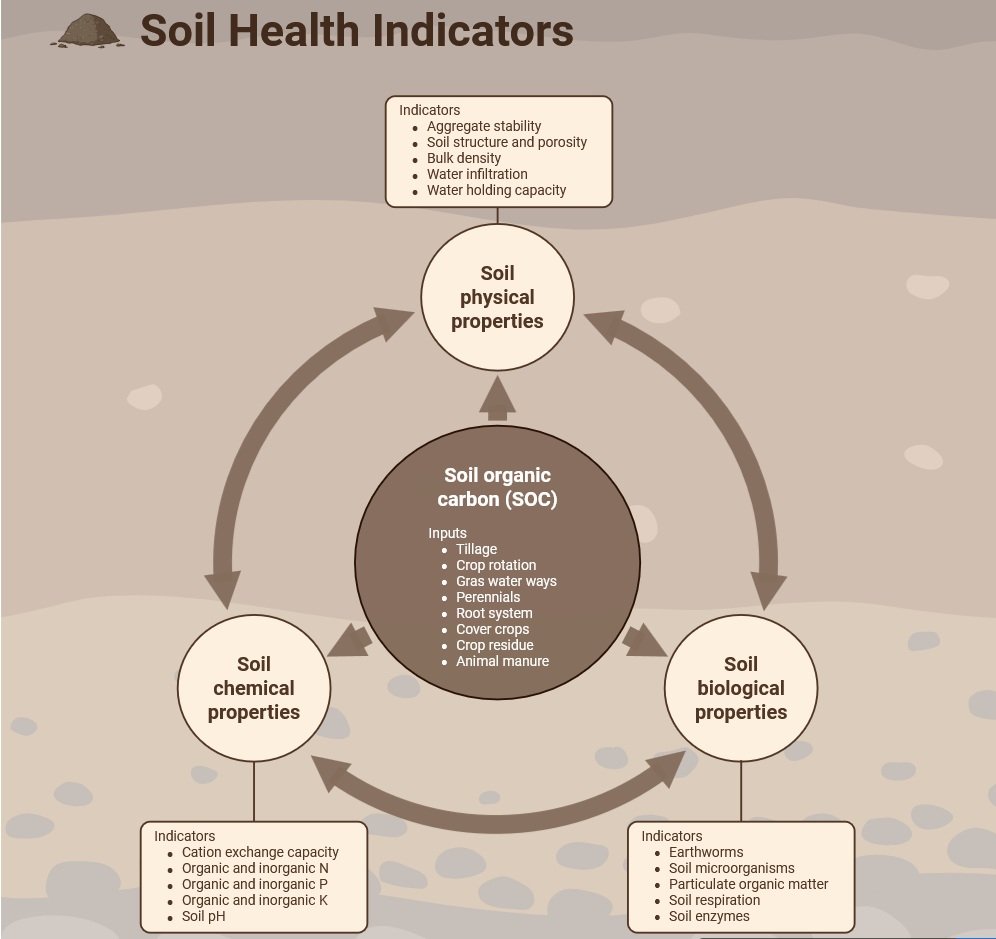
9. Water Microbiology
- The study of the microorganisms found in water and their impact on health, the environment, and industry is what makes water microbiology so crucial.
- By assisting in the identification and management of pathogenic microbes that cause waterborne diseases, it guarantees access to safe drinking water and sanitation.
- Water microbiology is also critical for maintaining ecological balance in freshwater and marine environments, tracking aquatic ecosystems, and comprehending the role of microbes in nutrient cycling.
- By guaranteeing water quality and safety, this sector supports public health, wastewater treatment, and environmental protection.
10. Molecular Microbiology
- Molecular microbiology is important because it analyzes microbes at the genetic and molecular level, elucidating their behavior and interactions.
- Researchers can gain a greater understanding of microbial physiology, pathogenesis, and evolution by studying microbial genetics, metabolism, and regulatory mechanisms.
- This area is used to combat antibiotic resistance and create vaccines, antibiotics, and biotechnology instruments.
- Molecular microbiology is also the foundation of technologies like genetic engineering and recombinant DNA technology, which spur advancements in medicine, agriculture, and industry.
11. Microbial Genomics and Genetics
- The study of microbial genomics and genetics is crucial because it reveals the genetic makeup of microbes and explains how their traits are inherited, manifested, and controlled.
- Researchers can study microbial diversity, identify genetic variations, and comprehend the processes underlying antibiotic resistance and pathogenicity by employing techniques such as DNA sequencing, PCR, and CRISPR-Cas9.
- These discoveries advance therapeutic innovations, vaccine development, and evolutionary research.
- This field is significant because it has the potential to improve microbial engineering, biotechnology, and individualized therapy for the good of humanity.
12. Microbial Ecology
- Microbial ecology is essential for comprehending the relationships between microbes, their hosts, and their surroundings.
- The function of microbes in ecosystems, including nutrient cycling, symbiosis, and adaptation to environmental changes, is emphasized in this area.
- Modern technologies like metagenomics enable researchers to examine complicated microbial populations without culturing them, uncovering previously unknown diversity and ecological roles.
- Since microbial ecology offers knowledge of how microbial life supports balance in nature, it is essential for environmental management, sustainable agriculture, human health, and ecosystem rehabilitation.
Conclusion
Microbiology is one of the most dynamic and impactful branches of science. From soil fertility and food safety to genetic engineering, healthcare, and forensic science, microbes play indispensable roles in sustaining life and solving global challenges. As research advances, the applications of microbiology will only expand—supporting innovation, sustainability, and improved human health.
FAQs on the Importance of Microbiology
Q1. Why is microbiology important in agriculture?
Microbes enhance soil fertility by fixing nitrogen, solubilizing phosphorus, decomposing organic matter, and promoting plant growth naturally.
Q2. How is microbiology used in biotechnology?
Microbes are genetically engineered to produce medicines, vaccines, enzymes, biofuels, and biodegradable plastics.
Q3. What role do microbes play in healthcare?
They help diagnose, prevent, and treat diseases by producing antibiotics, vaccines, and serving as models for research.
Q4. How does microbiology support food production?
Fermentation microbes produce bread, cheese, yogurt, beer, and wine while also improving food safety and shelf life.
Q5. What is microbial forensics?
It is the use of microbial evidence in solving crimes, such as identifying individuals, determining time of death, and analyzing environmental traces.
Q6. Why is water microbiology significant?
It ensures safe drinking water, prevents waterborne diseases, and supports ecological balance in aquatic environments.
Q7. How does microbiology help in environmental protection?
Through bioremediation, microbes degrade pollutants, recycle nutrients, and restore ecosystem balance.
Also Read
- What is Microbiology? History, Scopes & Applications
- Microbiology Experiments for Students: A Complete Guide
- Parasitology: An Overview of Parasites, Diseases, and Host Interactions
- Food Microbiology Research Topics: Emerging Trends and Future Perspectives
- Spirulina: The Superfood Microalga with Limitless Potential
- Microscopy: Principles, Types, and Applications
- Culture Staining Techniques in Microbiology: Types, Methods, and Applications
- Detection of Viruses: Modern Methods, Applications, and Advancements
- Basic Microbiology Quiz
- Medical Microbiology Quiz
- Immunology Notes
- Virology Quiz


What are the most common side effects associated with Miclor, and how does it interact with other medications? I’ve heard that it’s important to consult a doctor before use. For more information, I found this link useful: https://pillintrip.com/medicine/miclor
Miclor may cause common side effects like nausea, stomach upset, dizziness, or headache. It can also interact with other medications, so it’s important to consult your doctor before use. Thanks for your comment.